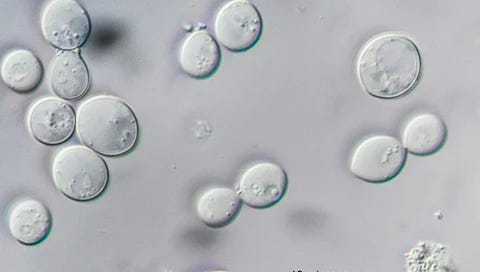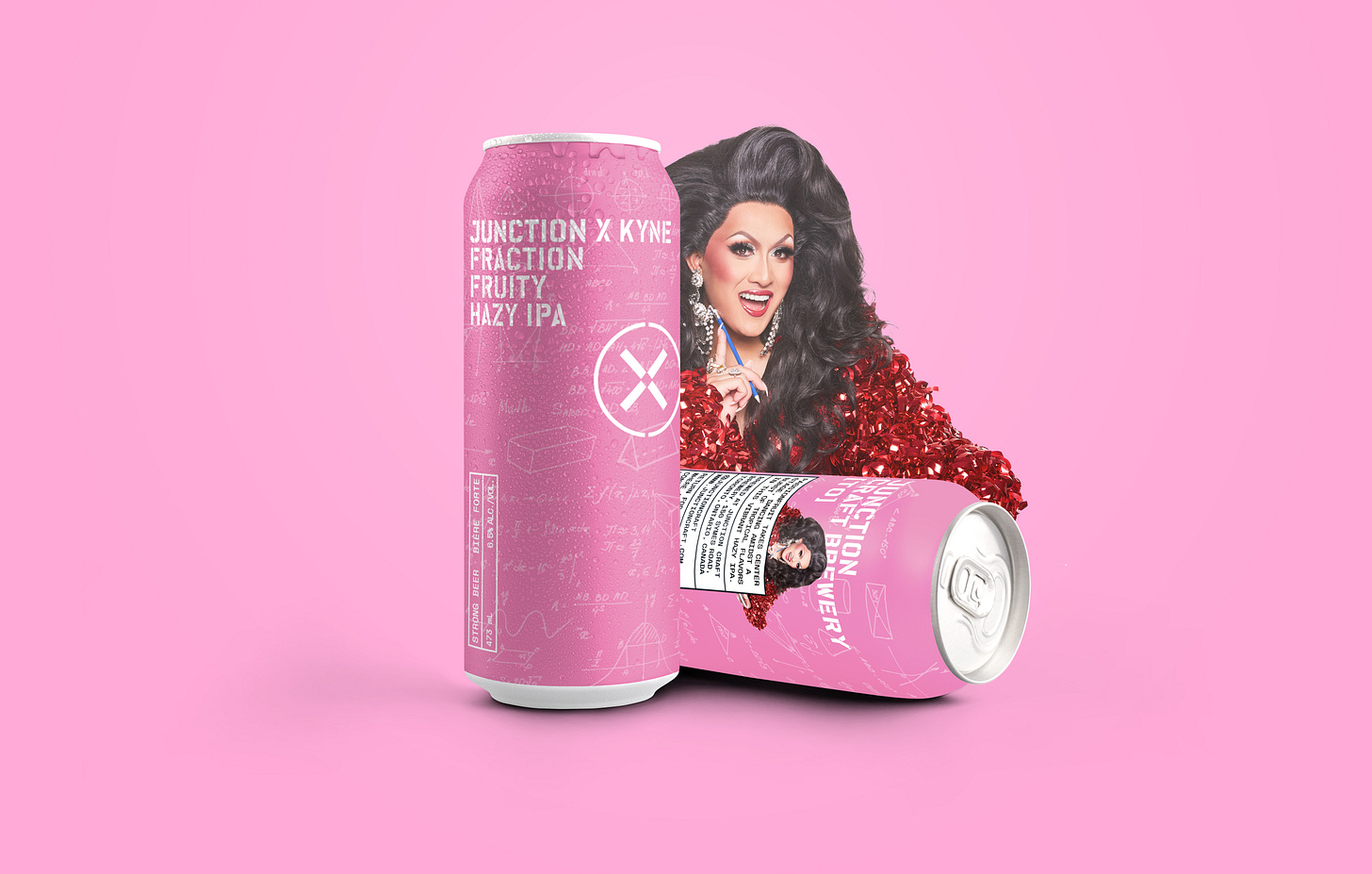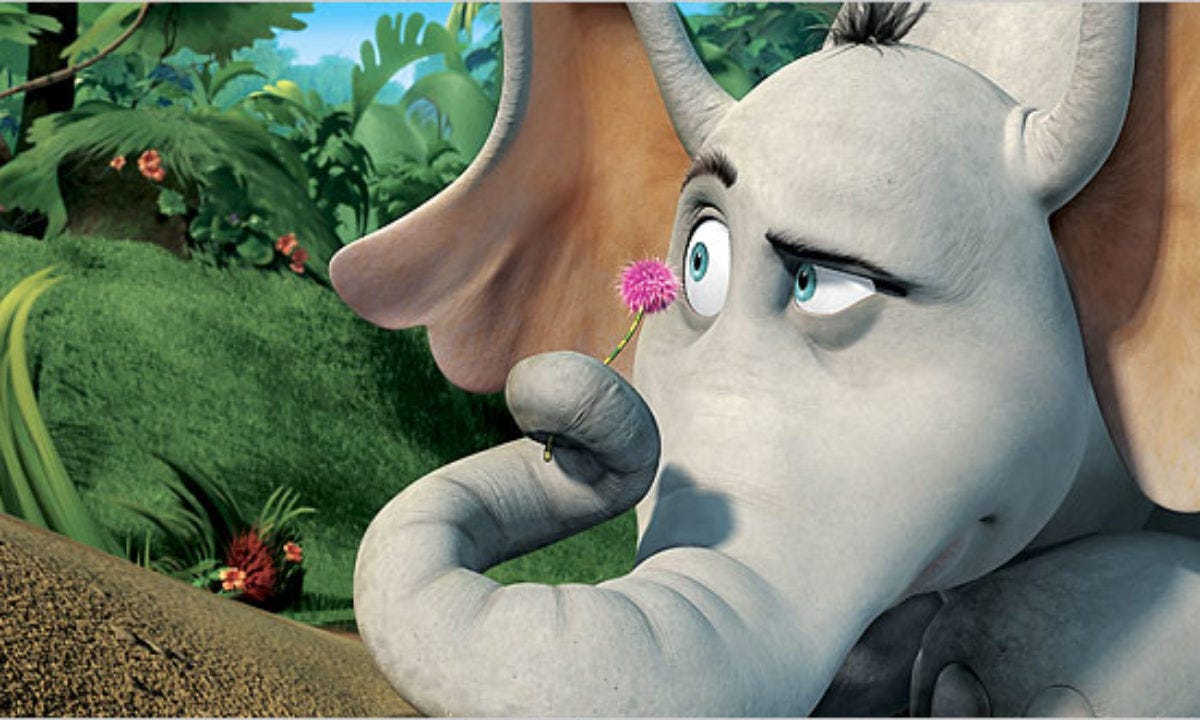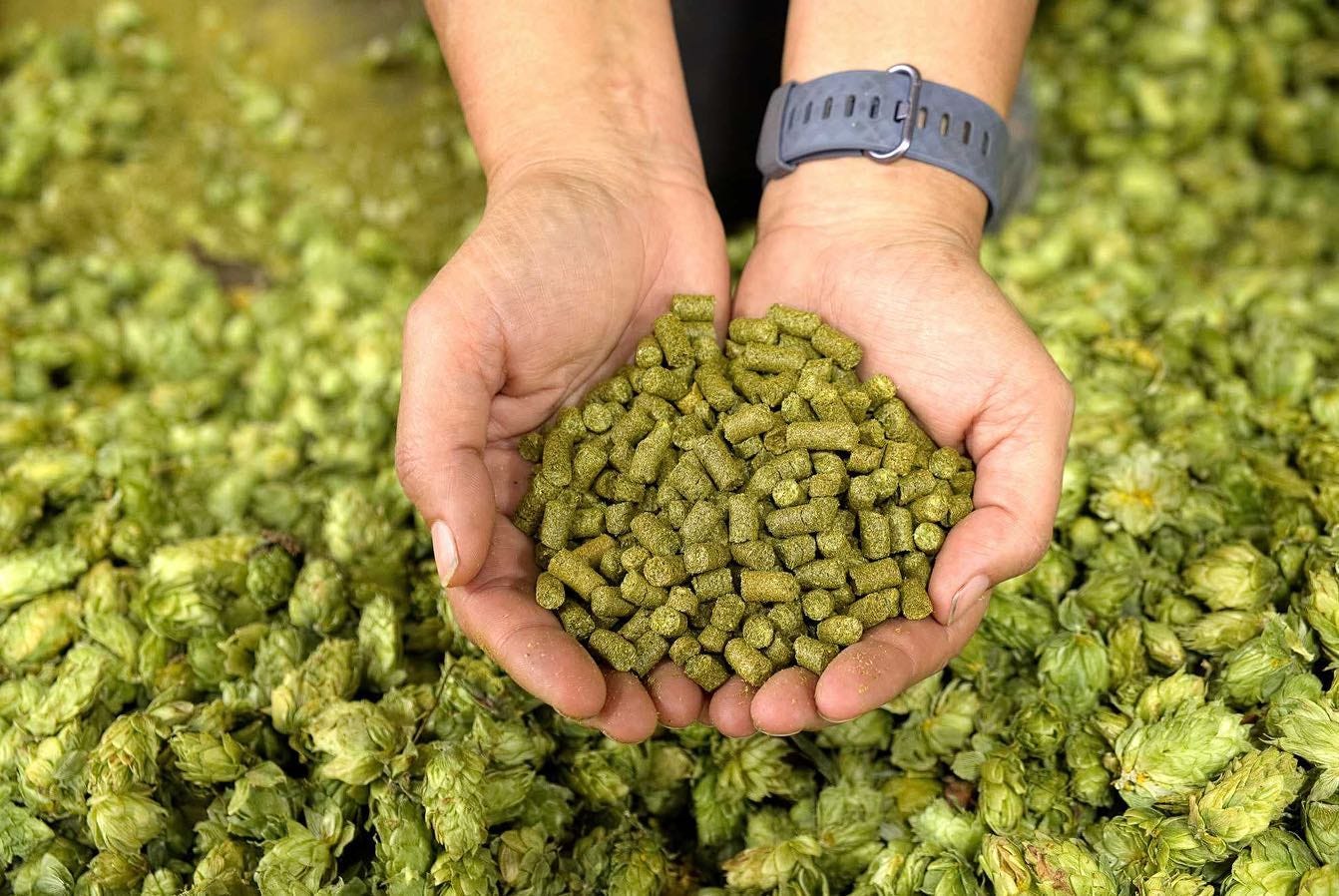Hi my dear readers. I am SO SORRY about missing the last two weeks of posts. The past month has been a whirlwind of stress and emotions with my book launch, and I plan to write about all of it eventually. In the meantime, enjoy my rabbit hole of the week, the science of BEER?!
In 1680, a Dutch scientist named Antonie van Leeuwenhoek looked at a drop of beer under a microscope, and found tiny microorganisms floating around. He was the first human to look at these things up close. He suspected they might have been a byproduct of brewing beer. They were in fact yeast, and they’ve been centre stage to the brewing process for thousands of years!
This upcoming April I’m working with Junction Craft Brewery in Toronto to host the launch of my book tour! To celebrate, they crafted a limited edition beer can with my face on it: Junction X Kyne “Fraction Fruity” Hazy IPA.
I’ll be completely honest and admit that I’m not a beer drinker. I WAS however fascinated when I visited the brewery and learned about the process of making beer.
Beer only requires three ingredients: water, fermentable sugar, and yeast.
Yeast are tiny microorganisms that can be found anywhere, floating around the air or on the skin of a fruit. They’re so small that we didn’t even know they were there until Antonie van Leeuwenhoek found them in 1680. But we’ve unintentionally been using them to make beer since at least 7000 BCE!
Yeast metabolizes sugar into alcohol and carbon dioxide. This process is called fermentation. The carbon dioxide gas is the reason you need yeast to make bread rise, and it’s also why beer has bubbles!
Now for the fermentable sugar. This can be wheat, barley, honey, grape juice, or even potatoes (for some types of vodka).
Beer’s Beginning: A Thick, Stone Age Gruel
Thousands of years ago, somebody mixed up their grains with water to make a porridge that was softer to eat, and when they accidentally left it out for too long, they came back to discover that it had a strange, different flavour.
All of a sudden, they felt dizzy and tipsy. What they didn’t know was they unintentionally began the fermentation process when wild yeast in the air got ahold of that sugary liquid. The yeast began digesting the sugars and converting them into an intoxicating, mind-altering drug called alcohol. They must have chugged the entire thing and tried making more!
All across the world, civilizations in ancient China, Mesopotamia, and Egypt were discovering beer on their own, and it became an instant staple. Some used honey instead of grains, and called it mead. Others used grape juice as their fermentable sugar of choice, and that drink came to be called wine.
In the modern day, we usually think of fermentation as a bad thing that makes our food go spoiled. That’s what happens when you let microorganisms sit out on food for too long. But in the past, we were more open to letting fungi transform our food. It’s not just beer and bread that fungi are responsible for, they also give us cheese, yogurt and kimchi!
It wasn’t until 1850 when the mystery of fermentation was solved by Louis Pasteur (whose name you might recognize from pasteurized milk) that we finally understood why leaving fruits or grains in a container mixed with water eventually produced wine and beer.
Move over Jesus, yeast can turn water into wine too!
Sometime around the year 1000AD, people began adding a fourth ingredient into the mix: hops. Hops are the flowers of the hop plant (which happens to be a cousin of the cannabis plant) and are used to balance flavour, add bitterness, and inhibit spoilage.
Modern day breweries may use big industrial tools, but they still just use the same four ingredients to make every beer: water, fermentable sugar, yeast, and hops.
This includes my limited edition beer, Fraction Fruity!
The beer has hints of passionfruit…without actually containing passionfruit! It’s all in the experimentation and combination of water, grains, yeast, and hops!
Isn’t it incredible?! Have beer drinkers known about this all along?
If you want to try my Fraction Fruity beer, I’ll be at Junction Craft Brewery to celebrate the start of my Canadian book tour on April 3, 2024. You can meet me, get your book signed, and I’ll have a drink with you. Buy tickets here!









